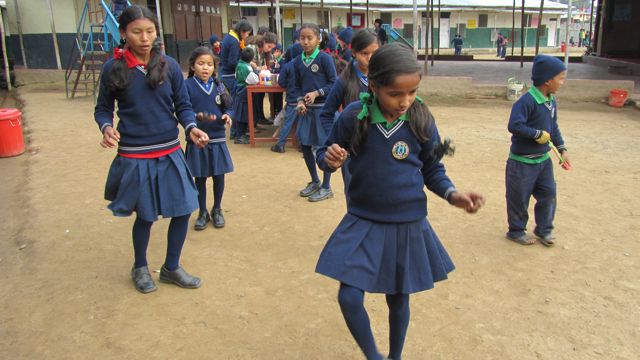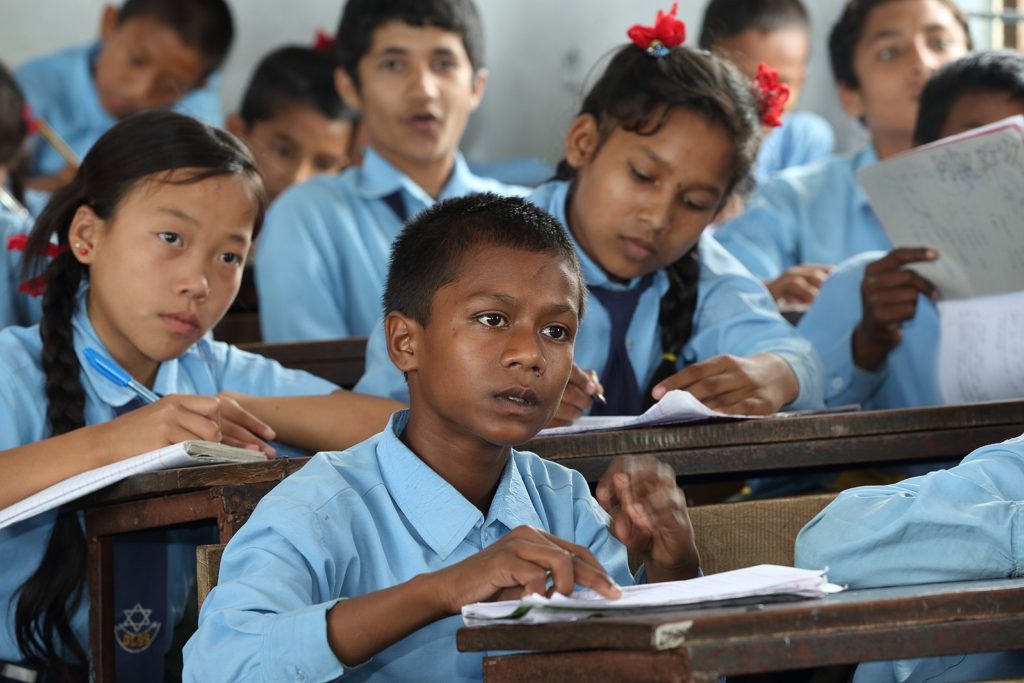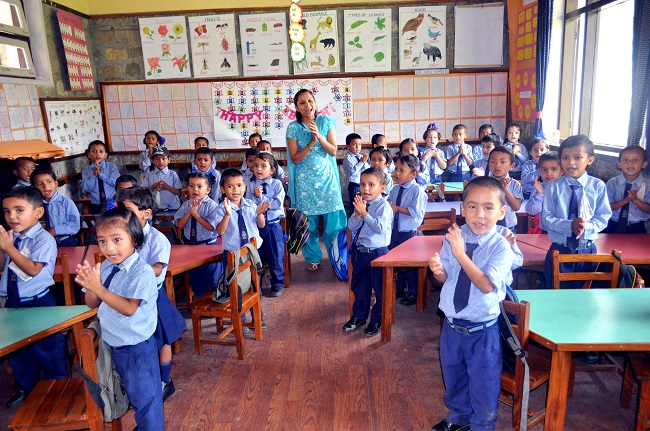By Om Tat Sat,
The kid was in the kindergarten. He was eating Wai Wai from the packet. We had visited that private school regarding our program to spread awareness about junk food in schools. So, it was a good opportunity to try to talk to that kid.
“Do you like that Wai Wai?” The boy responded positively.
“Do you know if you eat such junk food for lunch every day, you will become sick?” He said he did not know.
“But, now you do. So you don’t want to be sick, right, because you don’t want to miss school.”
He surprised us with his response. “I like being sick. Then I don’t have to go to school.”
We were struck speechless for a minute.
Let me narrate you another incident. We not only visited school to share activities for students, we also love to watch out for creativity and channel them to academic performance. So, when we saw that girls in almost all the schools were playing ‘Chungi” and were doing better than boys, we saw an opportunity. Our plan was to hold Chungi contest in each class and give prizes to the top three performers. Chungi is basically a game like footballers play, keeping the ball up in the air with their feet. The ball is replaced by a ball of rubber bands that they make themselves. When we gave prizes to students we gave our message, “These girls won because they enjoyed playing Chungi and practiced to be perfect.” Then we gave our message, “If you want to be top students in your classes, you just need to focus your attention on studies and practice.”

The contests became popular, and every class wanted to know when the contest would be held in their class. One Friday, when we visited the school, while we were waiting for the lunch break, there was an elderly person, who came to talk to us and told us bluntly, “Don’t organize any Chungi contests.”
When we asked later about that person, we were told that he was the chair of the school management committee.
So, what these two incidents illustrates are that, students detests schools so much, they would rather be sick to avoid it, and that the management committee and the teachers do not wish to recognize creativity, nor are they interested to help students to focus on their talents. It is basically rote learning through and through.

What this leads to is very unhealthy situation for students, who are basically prisoners in their schools all over Nepal. The schools are running for more than 12 hours a day from morning till evening, only teaching book lessons, preparing for the exams by reviewing exam questions over and over. Coaching and tuition is what the schools call it and charge extra hefty money to the parents. It is a business for teachers.
Students are developing health problems from the heavy bags they have to carry every day. “Our teacher used to beat us so bad, if we left out a single book” so we carried those bags every day, and now I have a back problem. I have a painful back.
Yes, Nepal has a painful education system, and it is killing the future and dreams of the next generation.
It is relegating Nepal to third grade education, and slavery for years to come. A total overhaul is long overdue.
The writer is a graduate of Arizona State University in Political Science. He is working as a social activist and motivational speaker for students across Nepal since 2007.
The views and opinions expressed in this article are those of the author and do not necesarily reflect the official policy or position of Nepalisite.






















